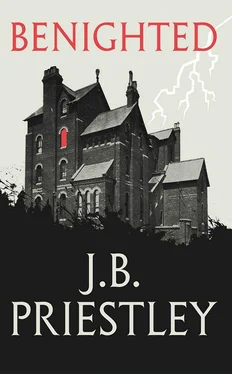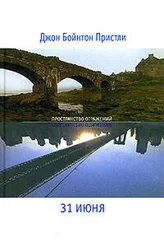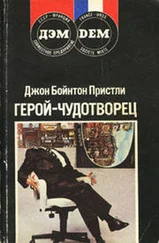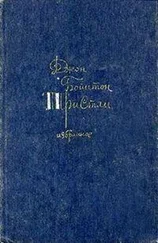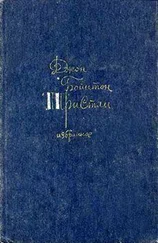He caught Margaret's "No, stop!" and instantly obeyed the cry. He did it against his judgment, yet felt partly relieved to be free for a moment from wheels and brakes. She clutched his arm and he could feel her trembling a little. "Let's stay here," she was gasping.
"We ought to go on while the road's still open." His voice was hoarse and he too was shaking.
"Let's get out and see what's happening," Penderel chimed in. "I believe the whole damned hill's going. Something's burst up above." He was opening the door. Horribly cramped, Philip tumbled out and joined him in the black downpour. At least it was good to be on one's legs again, and though the night was hideous, the situation seemed less precarious than it did when one was sitting in there, playing fantastic tricks with mechanism.
"Are we going to push on," Penderel shouted, "or stay here and ask these people for shelter? We can't go back, for that road's completely done in. And the road in front may be done in too. I'm for staying here."
"But listen to that." The fury behind had not spent itself and even appeared to be gathering force. "We're close to it," Philip went on, "and the whole place seems dangerous to me. It may be all washed away before morning. And really we ought to tell those people what's happening."
Penderel walked forward, peered through the entrance, and then returned. "They don't seem to be bothering much about it. Lights on, but no signs of alarm."
"Perhaps they don't know." Philip shivered. "For that matter there may not be anybody there. They may have cleared off."
Margaret was looking out of the car. "Why are you standing there?" For once she sounded forlorn. "I can't stand much more of this. It's a nightmare."
"Penderel thinks we ought to stay here," Philip told her. "But I feel inclined to go on. It isn't safe here and the road in front seems to be still open." He looked forward as far as he could, and though the road was partly flooded it revealed no dangerous obstacle.
"But is it open?" Penderel asked the question, and Margaret, still peering out, seemed to echo him.
The next moment they were answered. There came a rumble and a following roar, this time in front of them, somewhere not far away in the darkness. It seemed as if a whole side of the hill was slipping or being washed away. The noise was deafening, terrifying, like a great buffeting of the ears; and even the ground beneath their feet seemed to tremble. The road in front had gone, and what was left of the horseshoe bend, the little stretch on which they stood, was now being rapidly flooded. "Bring her in here," Penderel shouted, and rushed to the drive, bent on leading the way. Philip hesitated long enough to feel the sudden chill wash of water round his legs, and then clambered back into the car. The rain was streaming down his face and he could hardly see; his hands were so numbed that they were like pieces of wood; but the engine was running and he contrived to jam in the gear and slip the clutch with only the loss of a few seconds. For a moment or two the car roared helplessly, but then it began to move slowly, with a prodigious splashing, and he turned it through the entrance and up the drive, which ran forward at a slight incline. He could see Penderel hurrying in front, a jerky and blurred figure in the rain, just like a man in a film. Now the house, surprisingly large to be in such an out-of-the-way place, towered above them. What was to be done with the car? Philip couldn't decide, so merely turned it round the corner, where the drive curved towards the front door only a few yards away, and then came to a standstill. The head lamps shone upon the house and the door was strongly, dramatically, illuminated by their uncouth glare. It was a large door, stout enough for a little fortress, and three broad steps led up to it. Somehow it looked as if it were closed for ever.
Philip found Penderel looking in at him. "Benighted! – that's the word," Penderel said. "I've been trying to remember it all the way from the gate. I'll go and beg for shelter. What a night! What a place! I like this, though, don't you?"
Philip stared after him as he walked forward to the door. The night was still a tumult, full of a distant rumbling and crashing and the ceaseless drumming of the rain, yet there seemed to fall in it now a sudden quietness. It was the house itself that was so quiet. Driving up like this, you expected a bustle, shadows hurrying across the blinds, curtains lifted, doors flung open. But so far this house hadn't given the slightest sign, in spite of its lighted windows. It seemed strangely turned in upon itself, showing nothing but a blank face in the night. You could hardly imagine that great front door ever being opened at all.
And now Penderel was there at the door, darkening it with his shadow and groping for a knocker. Philip turned to Margaret, who was leaning back, exhausted perhaps. Once inside, out of the night, warmed and dry, eyes meeting eyes again in the light, they could perhaps talk everything out: now was their chance, before they reached home again and custom fell on them like weights of armour. He put out a reassuring hand, and though she didn't meet it with her own, he seemed to catch a faint smile. Did she whisper something? He couldn't tell. All he heard now was Penderel knocking at that door.
Penderel thought he would give them another and louder rap. " Is there anybody there? " said the Traveller . That's why poetry is so good, he told himself, his hand on the knocker; at such times odd bits of it come shooting up in the mind like rockets. Rat-tatta-tat-tat . Should he give them another and conclusive tat-tat , rounding off the phrase? No, that always sounded so complete that there was no urgency in it. That was loud enough anyhow, loud enough – as people said in their hellishly grim fashion – to waken the dead. Suppose the people inside were dead, all stretched out with the lights quietly burning above them. Suppose one of them was just dying or dead and the others were all crying or praying at the bedside, and he and the Wavertons marched in, "Can you put us up for the night, please?" But most likely the owner of the house would be a fat little Welsh squire, and the place would be full of dogs and drinks. He could do with the drinks. Everything about him was soaking except his throat, which was Sahara itself. If people are to be sodden, let them be sodden inside, where all the real mischief's done.
There was somebody at the other side of the door at last. He had a feeling that somebody was there, although he couldn't really hear anything. This door, he was positive, would take some opening; you couldn't imagine it flying open; it looked as if somehow it would have to be unscrewed. Yes, something was happening to it. It was creaking. It was moving. Now for it! – a neat little speech.
The door opened an inch or two, and Penderel saw an eye. There was no talking to an eye and so he waited. The eye withdrew and then the door was slowly pulled back. A huge lump of a man stood there, blankly staring at him; a shapeless man with a full black beard and matted hair over a low forehead. For a minute Penderel himself was all eyes and no tongue, staring blankly back. Then he recovered himself and rapidly plunged into speech.
"We've come to ask for shelter," he began. "We got lost and now we're absolutely cut off. We can't go forward or back. The road seems to have gone on each side."
He broke off for a moment to see if there was any response to his appeal. The man made neither sound nor movement; not a gleam of comprehension lit his face; he just stood there, so much humped flesh and staring eyes. It was as if the door had been opened into Siberia. The thought of the menacing night and the Wavertons waiting there behind him, the contrast between their situation and this senseless immobility suddenly angered him. He raised his voice: "The road here's under water now. There are floods, landslides. All the mountain side's coming down. We shall have to stay here. Don't you understand?"
Читать дальше
